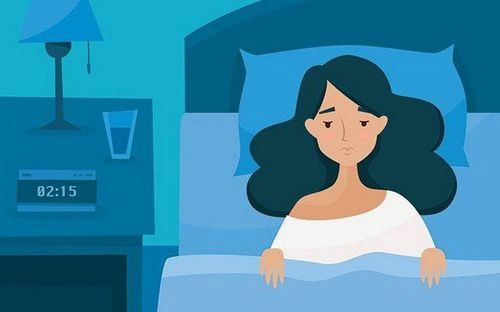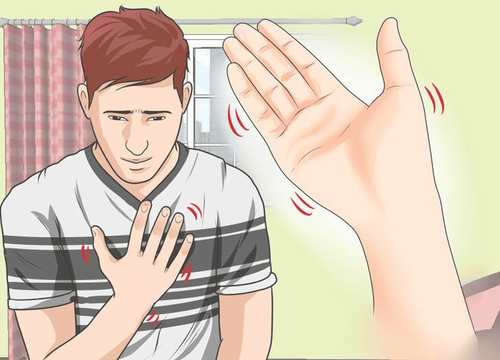This is an automatically translated article.
Life is full of emotions, so the appearance of negative emotions such as sadness, depression, and despair is inevitable. Sadness is a normal emotion for everyone, but if the feeling of sadness is prolonged, excessive, it can affect work, sleep, life and can even be a sign of depression.
1. To what extent is it normal to feel sad?
Life is full of emotions, so it's inevitable that negative emotions like sadness and hopelessness will appear. Everyone experiences bouts of sadness or depression. In fact, feeling sad and hopeless is a perfectly normal and healthy response to life's inevitable adversities. These negative emotions can even be good for you, because it allows you to handle a negative event in a healthy way. You can often distract yourself from your sadness by doing something you enjoy or talking to a friend or a psychotherapist.
Usually feelings of sadness and feelings of hopelessness will last a few days or maybe a week. During this time a person can function normally, still eat, sleep and complete tasks and chores in their daily life.
There are many situations that cause feelings of sadness and despair. These situations can also cause depression.
The passing of a loved one. Grief is a process that everyone goes through at the time of the loss of a loved one. Grief can take a long time to subside but does not usually lead to clinical depression. Breakups or divorces - even the loss of friendships - can lead to feelings of loneliness, sadness, and breakups that have actually been shown to trigger episodes of depression. Job loss. In addition to feeling rejected, losing a job can lead to financial stress. And the combination of stress, sadness, and anxiety can lead to depression over time. Health is not good . Prolonged illness and chronic pain often lead to self-isolation and loss of independence. While these stressors are especially common in the elderly, it's important to know that depression is not an emotional progression of aging, but is caused by feelings of sadness and hopelessness. too long. Seasonal sadness is a common cause of sadness in young people living in northern climates, also known as seasonal affective disorder. This is the kind of sadness that usually goes away with sun exposure.

Cảm giác buồn có thể xảy ra khi bạn bắt đầu kết thúc một cuộc tình
2. When does normal sadness turn into depression?
Sadness is a completely normal reaction and begins to subside over time, without much impact on normal activities and behavior. However, you should not be too sad, especially when feeling sad for a long time, excessively will affect work, sleep, life and can even be a sign of depression.
Feelings of sadness and feelings of hopelessness are similar to clinical depression. The difference between normal sadness and depression is in duration and intensity. Sadness is a normal human response to an unwanted, painful, or unfortunate event or experience. Usually, these feelings are short-lived and will subside over time. But when feelings of sadness don't go away but grow deeper and more intense and cause a person great difficulty or effort in performing daily activities, they can be signs of depression. cold. Depression is an illness that needs to be treated, not just an emotional response.
If you have five or more symptoms on most days, nearly every day for at least two weeks, and the symptoms are severe enough to interfere with your daily activities, you may be at risk for depression.
Extreme restlessness or anxiety or irritability (irritability can also be a common symptom in children and adolescents). Feeling worthless or having excessive guilt is not appropriate. Feeling depressed, sad, or empty, or showing sadness or tears to others. Feelings of hopelessness or feelings of helplessness. Loss of interest or pleasure in normal activities and also those that you used to enjoy. Major changes in your weight or cravings. Significant weight loss without dieting or significant weight gain (e.g., more than 5% of body weight in one month). Constant fatigue and feeling low on energy. Inability to think clearly, difficulty thinking, concentrated stock, indecisiveness. Unable to sleep, not sleeping well, or sleeping too much. Repeated thoughts of death or suicide without a specific plan or attempt at suicide or with a specific plan to commit suicide.

Cảm giác tuyệt vọng có thể khiến bạn không thể ngủ hoặc ngủ không ngon
Psychology - Vinmec International General Hospital has the function of examining, consulting and outpatient treatment of psychological problems and psychological health. With modern equipment and a team of experienced professors and experts in the research and treatment of Psychiatric diseases such as: emotional disorders, stress-related disorders and body dysmorphic disorders, Developmental disorders in children, adolescents & childbearing years.... Along with the combination of implementing psychological tests, intensive psychotherapy for diagnosis and treatment will bring the best medical treatment for patients
Please dial HOTLINE for more information or register for an appointment HERE. Download MyVinmec app to make appointments faster and to manage your bookings easily.













